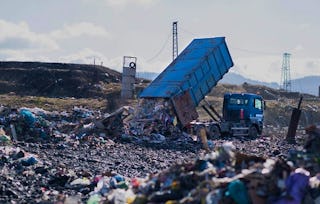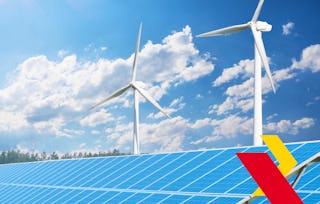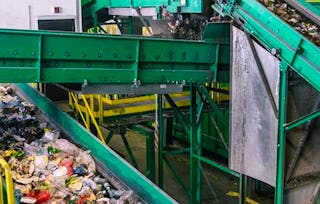This course explores the concept of energy efficiency and sustainability in building design, covering topics such as forms of energy, strategies for energy efficiency, and the role of renewable energy and water management. The module emphasizes the importance of certified fixtures and rainwater harvesting for water efficiency. It also discusses waste management, including types of waste, treatment methods, and strategies for different building purposes. The focus then shifts to the environmental footprint of buildings, specifically addressing construction and demolition (C&D) waste. The module on C&D waste management explores sustainable practices, including composition, measurement, processing techniques, and regulations. It advocates for a circular economy approach to enhance resource efficiency and minimize environmental impact, concluding with case studies showcasing sustainable C&D waste management within the construction industry.
6 days left! Gain next-level skills with Coursera Plus for $199 (regularly $399). Save now.

Resource and Waste Management in Buildings
6,853 人已注册
包含在 中
您将学到什么
Understand the features of Energy Conservation Building Code (ECBC) and implement energy efficient strategies in HVAC and Lighting system
Understand the concepts of waste water treatment and usage, rainwater harvesting and provide strategies for achieving water efficiency in buildings
Develop waste management plan for buildings by understanding waste treatment methodologies and resource recovery
您将获得的技能
- Stormwater Management
- Energy and Utilities
- Water Sustainability
- Environment and Resource Management
- Water Resource Management
- Building Codes
- Architectural Engineering
- Environmental Engineering
- Construction
- Sustainable Design
- Building Design
- Sustainable Architecture
- Waste Minimization
- Sustainable Technologies
- Construction Management
- HVAC
要了解的详细信息

添加到您的领英档案
4 项作业
了解顶级公司的员工如何掌握热门技能

积累特定领域的专业知识
- 向行业专家学习新概念
- 获得对主题或工具的基础理解
- 通过实践项目培养工作相关技能
- 获得可共享的职业证书

该课程共有4个模块
Energy efficiency, the practice of accomplishing tasks with reduced energy consumption for the same outcomes, emerges as a key focus in this module, particularly in the context of building structures. Beginning with a comprehensive exploration of the nature of energy and its diverse forms within buildings, the discourse transitions into methods for optimizing energy efficiency within these structures. Emphasis is placed on the pivotal role of building energy simulation and the crucial features outlined in the Energy Conservation Building Code (ECBC). The module also illuminates strategies for enhancing energy efficiency in Heating, Ventilation, and Air Conditioning (HVAC) systems and lighting, supported by illustrative examples. Additionally, the module underscores the significance of integrating renewable energy sources, implementing energy management systems, and the procedural insights into conducting an effective energy audit within building environments.
涵盖的内容
7个视频5篇阅读材料1个作业
Water efficiency entails minimizing water consumption in various activities without compromising comfort or functionality. This module focuses on the planning and design of water management systems for buildings. The module encompasses strategies to reduce water usage through the adoption of certified water-efficient fixtures following the Uniform Illustrated Plumbing Code of India. Additionally, the module delves into the detailed exploration of rainwater harvesting as a vital measure to address water crises. The significance of water metering, its types, and contemporary trends are elucidated. The final segment covers the treatment of wastewater, the reuse of treated water, and achieving water efficiency in landscaping through the implementation of effective irrigation techniques.
涵盖的内容
4个视频2篇阅读材料1个作业
The module commences with the concept of an environmental footprint and its implications on the global environment due to generated waste. This waste management module provides valuable insights into the generation of waste in buildings, its treatment, and secure disposal. Initially, we examine the diverse types of waste and various treatment methodologies, including processes such as converting waste into energy and resource recovery. Given that the nature of generated waste varies depending on the building's purpose, our focus extends to waste management strategies tailored for healthcare facilities and mixed-use residential and commercial buildings. The comprehensive waste management approach encompasses the identification of waste types, segregation practices, in-house transportation systems, storage methods, treatment processes, reuse initiatives, and proper disposal methods.
涵盖的内容
5个视频3篇阅读材料1个作业
Construction and Demolition (C&D) waste involves a diverse array of materials arising from construction activities, such as concrete, wood, metals, and others, which must be handled separately. This module on construction and demolition waste management offers a perspective on sustainable practices for handling C&D waste. It will cover the composition, measurement, processing techniques, and regulations associated with C&D waste management. The module will emphasize the adoption of a circular economy approach to enhance resource efficiency and minimize environmental repercussions. Additionally, we will explore case studies showcasing C&D waste management strategies that promote sustainable practices within the construction industry.
涵盖的内容
8个视频1个作业
获得职业证书
将此证书添加到您的 LinkedIn 个人资料、简历或履历中。在社交媒体和绩效考核中分享。
位教师

提供方
从 Environmental Science and Sustainability 浏览更多内容
 状态:免费试用
状态:免费试用 状态:免费试用
状态:免费试用L&T EduTech
 状态:免费试用
状态:免费试用University of Maryland, College Park
 状态:免费试用
状态:免费试用L&T EduTech
人们为什么选择 Coursera 来帮助自己实现职业发展




学生评论
20 条评论
- 5 stars
80%
- 4 stars
15%
- 3 stars
5%
- 2 stars
0%
- 1 star
0%
显示 3/20 个
已于 Feb 24, 2025审阅
Quite comprehensive, I learnt things I didn't know before
常见问题
To access the course materials, assignments and to earn a Certificate, you will need to purchase the Certificate experience when you enroll in a course. You can try a Free Trial instead, or apply for Financial Aid. The course may offer 'Full Course, No Certificate' instead. This option lets you see all course materials, submit required assessments, and get a final grade. This also means that you will not be able to purchase a Certificate experience.
When you enroll in the course, you get access to all of the courses in the Specialization, and you earn a certificate when you complete the work. Your electronic Certificate will be added to your Accomplishments page - from there, you can print your Certificate or add it to your LinkedIn profile.
Yes. In select learning programs, you can apply for financial aid or a scholarship if you can’t afford the enrollment fee. If fin aid or scholarship is available for your learning program selection, you’ll find a link to apply on the description page.
更多问题
提供助学金,






